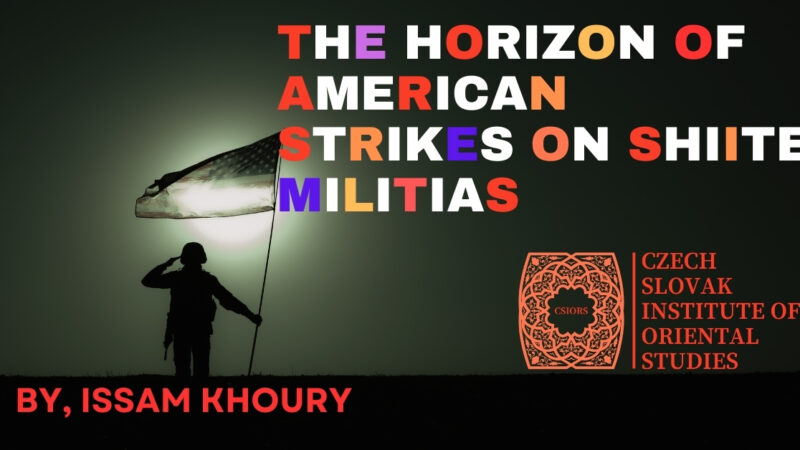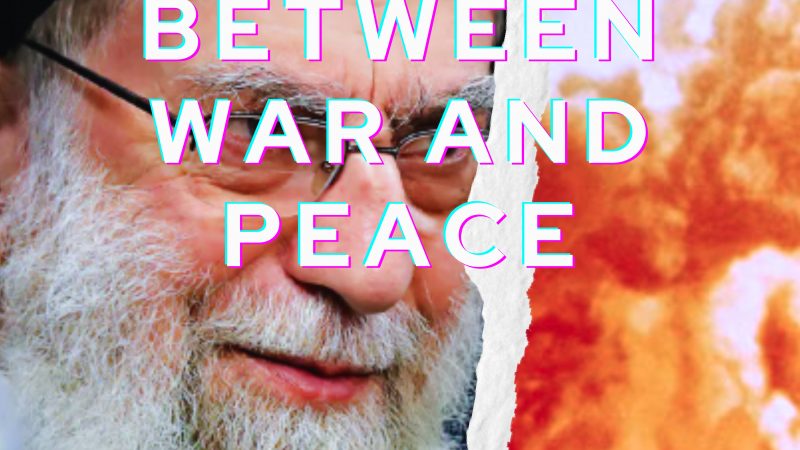Since its establishment, Lebanon could not, practically, be politically and economically independent, due to its small space, lack of sources and the differences in the political point of views of its sects and parties. So it remained politically and economically dependent on France, until the 1970’s, when it turned into a front line of civil wars, and a region of political struggle between foreign political groups from the mid 1970’s until the end of the war in 1990, when the political leadership transformed to the Syrian Arab Republic ” the Syrian guardianship period “, which lasted until it left on the 26/ 4/ 2005, after it was subject to international pressures and decisions that it should leave. Now, Lebanon is suffering a new period of instability which represents another labor, in which it searching for a state of political and economical dependency, defined by the two parties: the 14th pf March, which is related to the government, and the 8th of March.
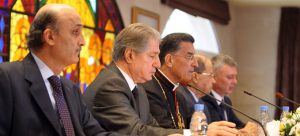
Al-Ta’f ‘s institution:
On the 30th of September 1989, Al-Ta’f’s institution was acknowledged in the KSA by 62 out of 73 Lebanese deputies, the absence of eight of those who did not attend the conference was not connected with political reasons. As for the 3 deputies who were considered boycotts of the conference, they were: Raymond Edde, Albert Mkhaiber and Emile Rohana Saqre.
It is notable that Al-Ta’ef’s Conference had established new constitutional foundations for Lebanon, which included putting a special introduction to the Lebanese that was considered an essential part of the code itself. It also included the definition of the base of the national Lebanese understanding, and the foundations of the security situation which was represented by the assurance on the unity of Lebanon, putting end to the fighting and putting date to the termination of the military militias; it also put the foundations of the political reformation in Lebanon, and leads the Lebanese to a detailed formula of the national understanding.
On 5/11/1989, the Lebanese parliament got together in Al-Qlay’at Airport. During which Rene Mu’awad was elected as the president of the Lebanese Republic. On the 22end of the same month he was assassinated. However, the parliament’s election, two days after the assassination, of Elias Alhrawe as a president, and the formation of a national government presided by Saleem El-Hoss, ensured a comparative stability and the carrying out of the decisions that came out of Al- Ta’ef ‘s Code under the Syrian guardianship
According to Al-Ta’ef Agreement:
- The president is a maronite Christian.
- The vice president is a Sunni Moslem.
- The parliament president is a Shiite Moslem.
The sectarian structure in Lebanon of Maronite, Orthodox, Catholic and Armenian Christians; Sunnite and Shiite Moslems, and sects of Moslem background like Druze an Alawis. Al- Ta’ef conference acknowledged Druze and Alawis as two Moslem sects, in connection with the distribution of the parliament seats. They are as follows:
- Moslem ratio ” Sunnites + Shiites ” was multiplied by 1,12 , due to the increase of their numbers in contrast to those who do not reach the voting age.
- The Christians ratio (all sects ) was multiplied by 0,86 , due to the decrease of the births among Christians in comparison with the Moslems.
- There was no change in the ratio of Druze and Alawis.

The Syrian-Lebanese relationship after the assassination of Al-Hariri:
The Syrian benefited from the authority granted to them during their military presence on the Lebanese land; so they aborted the 17 of May agreement 1984, which required a Lebanese- Israeli reconciliation, during the presidency of Amin Jmayel. They supported the partial trend in southern Lebanon; the Shiite sect, especially Amal Movement, presided by head of the parliament, Nabeeh Birry. With the growth of the Islamic Resistance in the south, led by Shaikh Hassan Nasr Allah, and the promotion of the Syrian-Iranian relationship, the Hizbullah- Syrian leadership relationship was promoted. In order that numerous of adherents of this party get training, with a Syrian-Iranian help, in Al Biqaa’ region, and in some of the Syrian training camps, considering that Hizbullah is unable to develop a strategic weapon, also its funds are not known, the Syrian-Iranian axis is the clear support the project of this party, which gave Syrian officers and security systems wide range of authority, on account of the political leadership which supervised the internal Lebanese policy.
The Syrian and the Lebanese authorities signed a number of agreements; the most important among them was the brotherhood and cooperation agreement which was signed in May 1991, and the defense and security agreement which was signed in 1991. This later agreement led to the formation of a committee for mutual defense that was to get together once every three months, in Syria or Lebanon. Among the purposes of this agreement the guarantee that Lebanon would not turn – according to the brotherhood and cooperation agreement – into ” a source of threat ” to the security of Syria, or that Syria would turn into a source of ” trouble and threat to Lebanon ” , and the elimination of any activity or organization, in the military, security and political fields, that could form a threat to any of the two countries.
Practically speaking, the security and defense agreement restrained the freedom of speech and the forming of societies in the country. Any group or political party that was not in agreement with Syrian authority was not allowed to act. Their members were abused in their human rights, including arbitrary arrest and torture. Among those were the prohibited party of The Lebanese Troops and The Free National Trend, both are Maronite, and members from number of various political, Sunni group that are opposed to the government and are considered as a threat to the Syrian interests in Lebanon, especially in the north and in Al Biqaa’, in where Syria had a wide military and security domination.
The Syrian officers had practiced lots of security and sovereignty transgressions within the Lebanese privacy, and participated in establishing the measures of Al-Ta’ef Code which destroyed partly the political Maronite power, ” the biggest loser in the civil war “, which caused a state of indignation in the Lebanese street, except among the Shiites and Alawis, towards the Syrian domination, especially with the presence of a politically and financially powerful personality, who had been an ally to the Syria in the past then he dissented from it; he was Rafeeq El- Hariri, the ex-prime minister, whose assassination on 14/ 3 / 2005 represented a national, supporting turning point of what was called the cedar revolution, which demanded the withdrawal of the Syrian troops from Lebanon. The output were as follows:
- The resignation of the Prime Minister Omar Karame on 28/ 2/ 2005, as a result of the demonstrations calling for the step-down of the government that was supported by Syria.
- A million people demonstration of Syria’s’ advocates against foreign interference, in concern with the investigations about Al-Hariri’s assassination, and to express their rejection of any Syrian withdrawal from Lebanon on 8/ 3/ 2005, as an answer to a clear call from Hassan Nasalla and Al-Marada movement. The advocates of Syria were called the 8th of March’s Team.
- About a million people demonstrated as a tribute to president Al- Hariri .. which was called the 14th of March’s Team, whi opposed the Syrian domination, and represented the parliament majority in the present government.
- Appointing Omar Karame as a Prime Minister- but he apologized, because could not form a cabinet. So, Najeeb Miqati was put in charge.
- On the 26th of April – the withdrawal of Syrian Troops from Lebanon.
- June 2006 – Parliament elections was underwent and the winning of the quadruple alliance, which was consisted of Al-Mostaqbal Trend, Hizbullah, The Socialist Progressive Party and Amal Movement, with the majority parliament seats on the19th / 6/ 2006, when Assanyora became the Prime Minister, representing Al-Mostaqbal Trend.
The notable thing about what happened after the withdrawal of Syria from Lebanon, is the far-reaching changes that happened among the effective political trends in Lebanon, foe example:
- Hizbullah let down his partners in the parliamentary elections and joined his rival, Aun, to form together an opposed trend, when on 11/ 11 / 2006 six of Al–Sanyors’ cabinet resigned, because they rejected the draft of the international court law concerning the assassination of Rafeeq El-Hariri. Followed that the withdrawal of the deputies of Hizbullah, Amal Movement, the Free National Trend, from the cabinet, supported by Al-Marada Trend, the advocates of Ah-Amir Erslan “Druze”, and some Sunni personalities which previously represented the historical Sunni leaders in Lebanon. They got together to decide the dismissal of the government: (” agent for the benefit of the American and Israeli purposes ” they said “), especially after the end of the July war.( On the 13/7/ 2007 , Israel waged a war on Lebanon lasted 33 days, the result was 1000 killed from the Lebanese side, and 140 Israeli, in addition to Israel’s failure in exterminating Hizbullah). This group was called The 14th of March Group. They stayed-in strike outside the parliament’s campus on 11/ 12 / 2006 to drive the Sanyora’s government to resignation, because they considered it illegal, after the withdrawal of the seven deputies and ministers. The main purpose of this team towards the Syrian side is to have a balanced relationship with Syria, within a frame of coexistence and not blaming Syria for all Lebanon’s troubles, especially now after the Syrians are out of Lebanon
- The 14th of March’s Team – except for the Lebanese Troops -, who had been before loyal to Syria, now became a fierce enemy to Syria. They blame Syria for all the bits and pieces of the Lebanese crisis ” the assassination of their deputies; the Fateh El-Isalm’s crisis in Nahr El-Barred Camp; president Lahood remaining in his post)
The Syrian point of view about the Lebanese crisis:
Lebanon represents the southwest side of Syria, and the Lebanese demographic texture is the extension of the Syrian texture; numerous families from both sides are married from each other. Therefore, the separation of the two textures is unacceptable publicly and politically. Also, Syria is a good market for Lebanon and it is the only outlet for any Lebanese government in the present state of no piece with the Israeli, which a big party of the Lebanese does not recognize; that is, the Shiite, who occupies the nearby northern Israeli territories. They describes Israel by the assaulting existence “, especially after the continuous Israeli trespassing their lands and air, killing their innocent civilians (the Sabra and Shatila Massacre during the Israeli invasion of 1982, and Qana refugee camp.. )
Therefore, the Syrians are very worried about the changes in Lebanon, and that’s why they support Hizbullah who considers it the only outlet and the more effective to fulfill their project in establishing an opposing state to Israel and the USA in the region, in coherence with the project of the Islamic Republic in Iran, which seeks to gain an international acknowledgement of being a super power in the middle east that can not be ignored.
The USA, in turn, supports, publicly the 14th of March Team. Now it is working on authorizing a draft resolution in the favor of electing a Lebanese president from the team that belong to the government or its advocate, in order to put down Hizbullah’s activity, which Israel failed militarily to achieve along 33 days in July 2006, or to kill its leader Hassan Nasrallah, which drove the USA and France to interfere strongly to reinforce the Lebanese Cardinal Sfair to candidate Maronite personalities capable of achieving social agreement, considering that The Cardinal Sfair is the most powerful religious personality in the Maronite sect in Lebanon, from which, as Al-Ta’ef agreement goes, the president must be chosen.
Waiting and worrying:
The Lebanese are waiting for the institutional gap to be filled, but in vain, because the presidential maturity date has been postponed to the 23rd of 11/ 2007 in search of an accepted president by the two branches of power. It is to be afraid that, in case there is no agreement, the state of confusion would continue in Lebanon. This is connected with the following:
First: the agreement on a Maronite president from the 14th of March Team:
In case this happened, the American project in Lebanon and the Middle East would achieve an effective result in controlling Hizbullah in south and north of Lebanon, as a step toward cutting the military provisions toward those regions, through high surveillance system. It maybe achieved with the help of the multinational troops in southern Lebanon ” Unifel “, and the outpost American base in north Lebanon that can watch the Lebanese-Syrian borders, which would contract the Syrian power in the Lebanese regions, and weaken it strategically in front of its historical, assaulting enemy, Israel; this, in turn, would contract the Iranian strategic power in the Middle East, which would be considered as a wide, far-reaching step towards eliminating any chance for the Russians to have any role in the Caspian Sea region.
Secondly: the agreement on Aun as an elected president:
President Aun is, as he said, ruthless in concern with corruption, and being a president would participate in achieving agreement of the different sects, but on the other hand, his military background would prevent him from achieving any agreement between the ambitions of the Lebanese people, and the foreign interests in a country which got used to the international interferences in decisions concerning its sovereignty. Also, Aun as a president would be an extra obstacle in the face of Al- Sanyora’s government with its majority of parliament deputies, and he would not be a better alternate in dealing with the purposes of the present government, which would cause a state of disagreement among the institutional powers, similar to the status quo with Emile Lahood. Therefore. Aun would claim the resignation of Al-Sanyora’s cabinet, to be replaced by another one that matches his ambitions and his more popular partner’s, Hizbullah; that would lead to turbulence in Lebanon which would bring back the Lebanese to the civil war’s atmosphere, and reflect its negative consequences on the whole region; because most of Hizbullah’s activities, which are directed currently against Israel’s interference in Lebanon, seeking to liberate Shib’a’s Farms, ” Lebanese according to an unofficial acknowledgment by Syria, documented by the UN “, may be directed to help its securely weak advocates, and that would confuse its main aim, exhaust the whole of the Lebanese texture, and lead to a state of alert all along the Lebanese-Syrian borders and an emigration movement from Lebanon to Syria, which is not ready to receive a new wave of emigrants to add to the Iraqi emigrants (whose number has mounted, according to the UN statistics in 2007, to one million and half million), and would create politically and economically unbalanced situations in Syria. In this case there are two possibilities:
- In case there was no war in the region (America + Iran): the Syrian economics would collapse, especially with the absence of a neighbor that has good terms with; its relations with Jordan and Iraq is rather cold; also Turkey would not let down its master in the NATO, the US, just because Syria support it in case of the Kurd PKK.
- In case there was a war: Israel would wage military earth and air strikes at Syria; the Syrian would practice few days of self-control, as usual, but in case the Syrian regime felt that the military strikes would smash it, they would not refrain from launching their ballistic rockets to strike all over Israel, in correspondence with their policy they practiced with Hizbullah in the war in July 2006. The whole region would explode; Israel would militarily take its chance to commit all kinds of violations and massacres in Gaza and the West Bank, on the pretext that Syria and Iran are financing and supporting Hamas there.
Thirdly: (which might delay the previous two choices) the election of an agreed on president from the government and theopposition sides, to create sort of understanding and balance between them:
It is very hard to find a Maronite personality with such qualities. This is clear from the list I put down of the most politically eminent Maronite personalities (in the last section of this report). No matter how far this personality would get in achieving agreement between the two sides (14 – 8 of March), it would be a short-lived one because of the international interferences and the meeting of the different parliament deputies’ interests. He should be obviously firm in concern with the weapons of Hizbullah, in accordance with the American-Israeli demand, and in consideration of the Christian fear from the growth of Hizbullah role in Lebanon, especially in case its leader Hassan Nasrallah was replaced by some fanatic religious personality. On the other side, Hizbullah in turn would not accept the removal of its weapons – depending what Nasrallah had said in his speech on 13/ 11 / 2007 , which shows that the next president would fall into the trap of his agreement with two absolutely disagreed sides, therefore he would find himself pushed to take one side against the other. ????? !
Fourthly: the current president Lahood would dismiss thegovernment: on the pretext that it is not institutional; a possibility that would enhance the confusion of the civil war, because the 14th of March Team, supported by America does not accept Lahood as a president, and considers that he is the direct source of instability and the success of the current elected government.
Fifthly: the assignment of the commander Michael Slayman to form the government: especially after he succeeded in not involving the army into the argument between the official authority and the opposition, even in the days of the great disputes between them during the demonstration, and after the latest assassinations.
But Mr. Al-Hariri, the leader of Al-Mostaqbal movement, had declared that he does not appreciate a military personality, or that has a military background, to become a president, indicating in this respect to Aun, which shows that this choice might be appreciated imposed by America on the 14th of March Team, if it wants to establish a comparative stability for a short period of time in Lebanon.
After reconsidering the above mentioned choices and two main tracks, we notice that the present presidential equation in Lebanon is a minimization of the whole of the Middle East crisis, which makes many put it on top of the international concern, because the success of any side would leave its effect on the whole region, and stop the power of one side on the cost of the other. If the problem to be solved peacefully, the whole of Middle East problem might be solved, and if it get complicated, the confusion would prevail all countries in the region, and vice versa.
The armament in Lebanon:
Few months ago, the Lebanese Press Agency and the government papers published photos of a group of Lebanese youth, members of the Free Trend, practicing the use of weapons; in turn, the Lebanese Home Office arrested those youth. The aforementioned institutions magnified the situation, saying that the opposition also are getting ready militarily, especially the Christian among them, to enforce their military situation along side their political situation. Also, General Aun appeared on the Lebanese TV to mock the Home Office’s act of arresting a bunch of activists from his party who were having a barbecue party in Al-Biqaa’ region, showing a video showing the young men doing their picnic.
But the armament affair in Lebanon did not stop there; other accusations were exchanged; many personalities from the opposition, deputy Najah Wakeem was among them, accused the government team that they training their men to use weapons. He meant especially ( Al-Hariri, Jonblat and Ja’ja’). During Nahr El-Bared crisis, it was noticed that the American were supplying the Lebanese government with great military provisions, to help it putting down Fath El-Islam Group led by Shaker El-Absi. That profusion of weapon in Lebanon reminded one with the same phenomenon noticed on the eve of the civil war.
Concerning the military training, we find exaggeration on both sides; most Lebanese, young and old, are experts in using weapons, as a result of the civil war atmosphere which afflicted Lebanon It is common that you find a light piece of weapon in every house there, and it is absolutely certain that the ex- leaders of the militias and their men have piles of good weapons; therefore, the Lebanese society is always ready for a civil war in case any dispute happened between sects.
It is notable lately that the gap between the Shiites and Sunni is widening, though the Sunni are scattered among different regions, and the Shiites are centered in the south and in the southern suburb of Beirut. This proves that the idea of a new civil war could start on the Lebanese land is valid, although the Lebanese people don’t wish to regain the memories of the last civil war.
Hizbullah has updated its weapons after July’s war. Hassan Nasrallah said in one of his speeches, that the party has had a military arsenal that surpasses the one it had before July’s war. It is well known that Shaikh Hassan Nasrallah would never lie, religious personality as he is, which prove that he obtained weapons and military equipments from Syria or from over seas through an unknown weapon bargain. That uncover the inefficiency of the Unifel team located in south Lebanon, especially after the success of launching Hizbullah, military branch’s rockets at the beginning of November ( the trial which proved that Hizbullah owns rockets capable of striking Tell Aviv, away from the eyes of the multinational troops)
As Hizbullah is getting armed, also most of the ex-Lebanese militias do the same, to obtain better weapons, because there is no effective, complete, institutional authority in all the Lebanese regions, which turns Lebanon into a good market for selling weapons, especially that the intelligence agencies are increasingly financing the political parties, each according to its trend and its outside partner. This increase led to a series of assassinations, from both the government team and the opposition, which put the political parties on the alert, and drive them to update their security systems to protect their activists.
The candidate Maronite personalities:
General Aun benefited from the wide popularity of Shaikh Hassan Nasrallah ” the strong man of Al-Shiite sect “, to become the popular Maronite personality among the Shiite, putting in his mind the highly armament of the Islamic Resistance, led by Hizbullah; Aun’s situation became strong, in spite of his opponents, even among the Christians themselves.
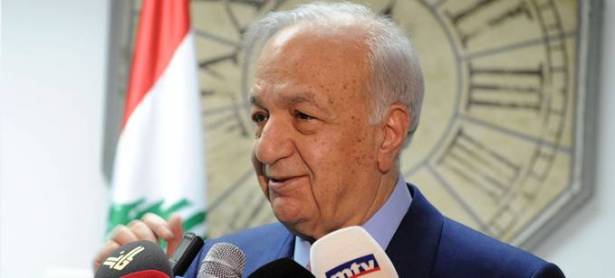
Michael Al-Murr, the ex-minister of interior ” Roman-Orthodox “, advocate of 14th of March Team and supporter of General Aun in his candidate, said on 16/ 11/ 2007: ” In the absence of an all agreed on Prime Minister, which we claim, the solution is not to have an institutional, presidential vacancy “. Meanwhile, Shaikh Hassan Nasrallah declared the impossibility of having a disagreed-on Prime Minister, and he refused the election according to the ” 50%+1″ mechanism. This shows that the 14th of March Team is not in coherence politically, although the leader of Al-Marada supports completely Aun’s team. Hizbullah existence, on the other hand, which gave a victory suitable for the southerners in Lebanon, is a strong existence politically, military and economically that can not be denied, in front of the different parties in the 14th of March Team, which makes it the most important member publicly and politically. In the mean time, many personalities of the 14th of March Team maneuver to mobilize support to their project, in accord with a regional policy that suits the American and French governments in the region, which strengthen their sectarian trend in Lebanon; so, most of the Lebanese Druze gathered around Waleed Jomblat in the mountain; and most of the Sunni in Beirut and Tripoli gathered around the Hariris, and a good number of the Maronite followers of Ja’ja’ ” leader of The Lebanese Troops “, and Amin Jmayel, leader of ” Al-Kata’b “.
The French suggestion ” Minister Kochner’s ” to choose Cardinal Sfair to choose, in turn, the names of six Maronite personalities, capable of bearing the burden of the presidency . He sent those names to be studied by the Prime Minister and the president of the parliament. These Maronite personalities, as we heard from a reliable source, are: deputy Butros Harb, deputy Naseeb Lahood, the banker Josef Tarabay, Pier Ghanem, the ex-minister of finance Demianus Kassar, the ex-Prime Minister General Aun)
The following names are the most eminent Maronite political personalities influential in Lebanon:
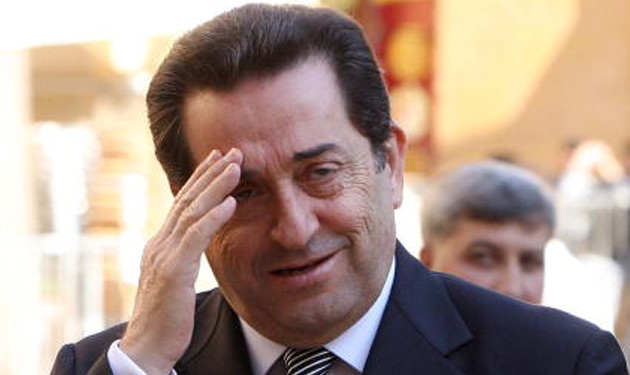
- Botros Harb / 14th of March/:
Born in 1944, Tannourin , northern Lebanon. Currently, he is a deputy in the Lebanese parliament. Although he is a member in the 14th of March alley, he, nevertheless, declare characteristic opinions in connection with the election of the president. He also declared that he would be a candidate for the presidency, if that was on the base of 5%+1, which the 14th of March has.
- License in the Lebanese Law.
- License in the French Law.
- Practiced the bar.
- A member in the parliament during the terms (1972, 1996, 2000, 2005). After Al-Ta’ef , he boycotted the parliament election for 1992 term, because of the election law and the appointment of members in the previous session.
- He undertook the following posts:
- The minister of national education and plastic arts twice.
- The minister of public works and mutual transformation.
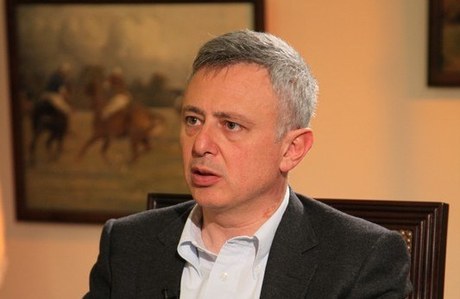
2 – Slayman Franjiyi / 14th of March/:
His grandfather was the president the late Slayman Franjiya; his father was the deputy and the minister Tony Frankiya. He is the leader of Al-Marada, which takes now the side of the opposition.
- He took over the leadership of the trend on 20/ 8 / 1990 from his uncle Pier Jmayil. Directly after that he worked on having strong relationship with Syria, following the steps of his father with Hafez El-Assad.
- In 1989, he accepted Al-Ta’ef institution as a new institution. He was the first to surrender Al-Marada militias’ weapons to the Lebanese state. He also supported the candidate of the late president Rene Muawad, which was a good point in the beginning of his political career, and a landmark in the history of the relationships between politicians in the region.
- He became a member in the parliament in 1991; then the youngest among the deputies. He also ran the parliament election in the years, 1992-1996-2000, but he lost his parliament seat in the last election in 2005.
- He undertook a number of ministers:
- Minister of the Public Health.
- Minister of Housing and Cooperative Societies.
- Ministers of Interior and Municipalities.
Franjiya is considered one of the biggest opponents to the Sanyora’s cabinet and the 14th of March Team, especially the Lebanese Troops, which leader, Sameer Ja’ja’, he accused of assassinating his father. He has a good relationship with the Syrian president Bashar El-Assad.
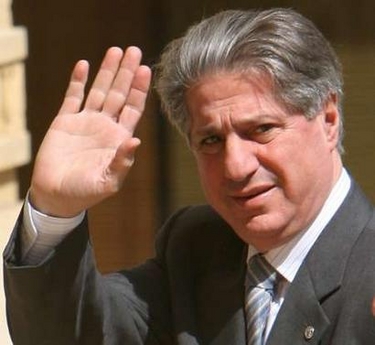
3 – Amin Jmayil 14th of March Team/:
He was inaugurated as president of Lebanon on 22/9/ 1982 and stayed until 22/ 9 / 1988. Now he is the high president of the Al-Kata’b party, which was founded by his father Pier Jmayil.
After the end of his time as a president, he went to an exile between Switzerland and France. He worked as a lecturer in Harvard University. He came to Lebanon in 2000 to join a trend opponent to president Emil Lahood, whom Jmayil considered as being controlled by the Syrians . In 2001 he disputed with Kareem Baqradoni, ” who is supported by Syria “, about the leadership of Al-Kata’b party. The dispute ended by inaugurating Jmayil as a high president of A-Kata’b ” a newly created post “, and Baqradoni remained as a president. His son, the minister of Industry, was assassinated on 21/ 11/ 2006, by shooting fire on his car. On 20/ 6 / 2007 he declared that he will be a candidate for his deceased son’ post as a representative of the Northern Matn, in the branch election. In spite of all the support he received from his allies in the 14th of March he was beaten by the candidate of the Free Trend, Dr. Kameel Khoury (who is supported by General Aun and the 14th of March Team); he got 39,116 voices against 39,534.

4- Sameer Ja’ja’ (14th of March):
He was born on 25/ 10/ 1952; one of the Lebanese war masters. He started his life as a political activist in Al-Kata’b party with a nickname ” Hakeem “, means Doctor, in the colloquial language, because he had started studying medicine, but never finished it. He is the head of the executive staff of the Lebanese Troops party, one of the ex-militias which played a major role in the Lebanese civil war. Ja’ja’s birth place is Ain El-Rimmani. He quitted his studies in 1976 to join the fight against the Palestinian organizations and the Lebanese National Movement. He played an important role in Al-Jabal battle against the Social Progressive party and its allies from the national parties, which ended by the displacement of the Christians from Al-Jabal’s villages. After the growth of Ja’ja’s influence, and his criticism of the Christian leaders, whom he described as traditional, Al-Kata’b party dismissed him, then he led an uprising against the leader of the party’s militia and took it over in 1986. He waged a fierce war against the legal Lebanese army, led by General Michael Aun, called The Elimination War.
After Al-Ta’ef Agreement, it became necessary for the party to be transformed into a political one like the other fighting militias. In 1994, he was put in jail because of the explosion accident of the Our Savior Lady Church. He was put to trial and accused by murdering the Prime Minister Rasheed Karami, and head of The Free Nationalists party Dany Shamoun, and the deputy Tony Franjyi with family in what was called Ehden Massacre. The court sentenced him to death, then the verdict was reduced by the president to a life imprisonment, and the Lebanese Troops were dismantled. In 2005, after the Syrians had left Lebanon, a special pardon was issued by the new parliament, and he was released and he resumed his political activity. Now he is considered as one of the eminent 14th of March team who are very much advocate of America, along side Waleed Jomblat and Sa’d El-Hariri.
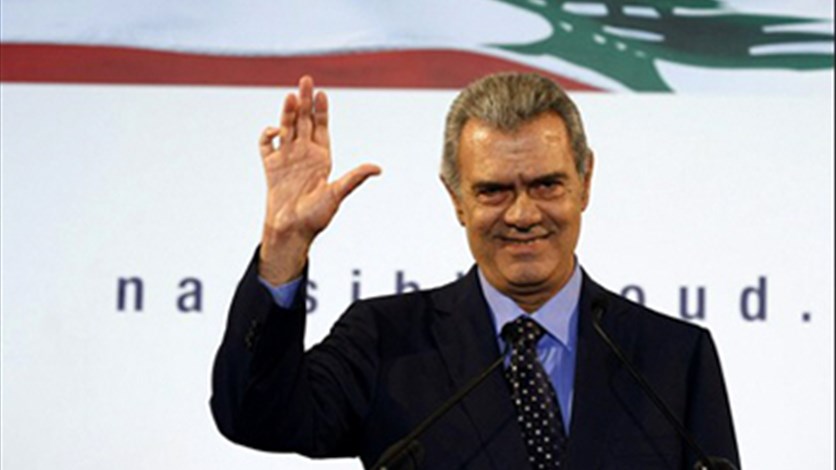
5- Naseeb Lahood: //14 March//
He was born on 23/ 11/ 1944; Lebanese Politician and one of the eminent candidates to the presidency, thanks to the American support. His birth place is the town of B’abdat. He got a degree in electric engineering in the High Academy of Engineering, ? University, Great Britain, in 1968. After completing his specialty in 1972, Naseeb Lahood established ” Lahood Engineering Company ” which carried on many power plants, desalination sea water plants and cement and petrol installations plants. It became one of the biggest plants in the region, in its own right.
In 1990, Naseeb Lahood was assigned as an ambassador for Lebanon in the USA. In 1991, he became a successor of the deceased Fau’ad Lahood, as a deputy for Al-Matn division, according to Al-Ta’ef agreement, which provided for filling the vacancies until the running of the next election. In 1992, he was elected a deputy for the same division, in the first election run after the end of the civil war; then he was re-elected in the years 1996-2000, when he undertook the compiling of the opposition’s list in that division.
He occupied the position of the head of the defense parliament committee for the years 1991 and 1992; and became a member in the foreign affairs committee and the finance and budget committee, from 1992 until 2005.
Naseeb Lahood is considered one of the eminent personalities in the 14th of March team. On 13/ 9 / 2007, he declared that he wants to run the election as a candidate for the presidency during a crowded meeting in Beirut’s Conference Center.

Michele Aun (8th of March):
He was born on 17/ 3/ 1935; a political and military leader. He was born in Hart Hrayk, in Beirut. He return from his exile in Paris, where he had spent 15 years, on 7/ 7/ 2005. He had gone there after the end of the civil war. After the war, president Amin Jmayil asked him to form a military government (Aun, then, had been the commander of the Lebanese army), upon the failure of the election of a successor to Jmayil. So, Jmayil gave him over the power after he form a military government in opposition to a civil government presided by Saleem El-Hoss. The Moslem ministers resigned hours after the government was formed, and so, Lebanon had two governments. Aun rejected Al-Ta’ef agreement which decided that Syrian troops must disperse on the Lebanese land, without putting date to their withdrawal. After fierce battles, Aun was dispelled from the presidential residence in B’abda on 13/ 10/ 1990 in a Lebanese-Syrian operation, upon which, he had to refuge in the French embassy in Beirut, and from there to his exile in Paris.
After he went back to Lebanon, six hundreds thousands of the Lebanese received him in Al-Shohada’ Square in Beirut. Shortly after his return, Aun ran the parliament election in 2005. He succeeded and joined the parliament with a parliament group consisted of 21 deputies. Currently, Aun is on the head of the Free National Trend, the most important among the opposing political parties in Lebanon, and allied with Hizbullah (according to agreement document signed in February 2006, in Mar Georgius Church), and Al-Marada movement, led by Slayman Franjiyi, and the Orthodox leader Michele El-Murr. He achieved victory in Al-Matn elections, for the vacant Al-Kata’b seat, ahead of Amin Jmayil himself. That supported his position among the Christians, especially after the support he got from the Armenian Al-Tashnaq party alongside Michel El-Murr’ advocates, representing the Orthodox side. He is, also, one of the eminent candidates to occupy the presidential seat, as a successor to Emil Lahood, and is considered the opposition’s only candidate. He is the first Maronite personality to present himself as a substitute to the present president, Emil Lahood.

General Michele Slayman:
Born in 1948; his birth place is Amsheet. Presently, he is the Commander of the Lebanese Army. From 1993 to1996, he had been the commander of the 11th infantry brigade. In 1996 he was promoted to brigadier general and appointed a commander to the 6th infantry brigade. In 1998, he was the commander of the army, after Emil LaHood became the president after he had been the commander of the Lebanese army. He became famous because he did not drag the Syrian army behind either the advocates or the opposites, which represented a conciliatory vision of this institution in this country.










